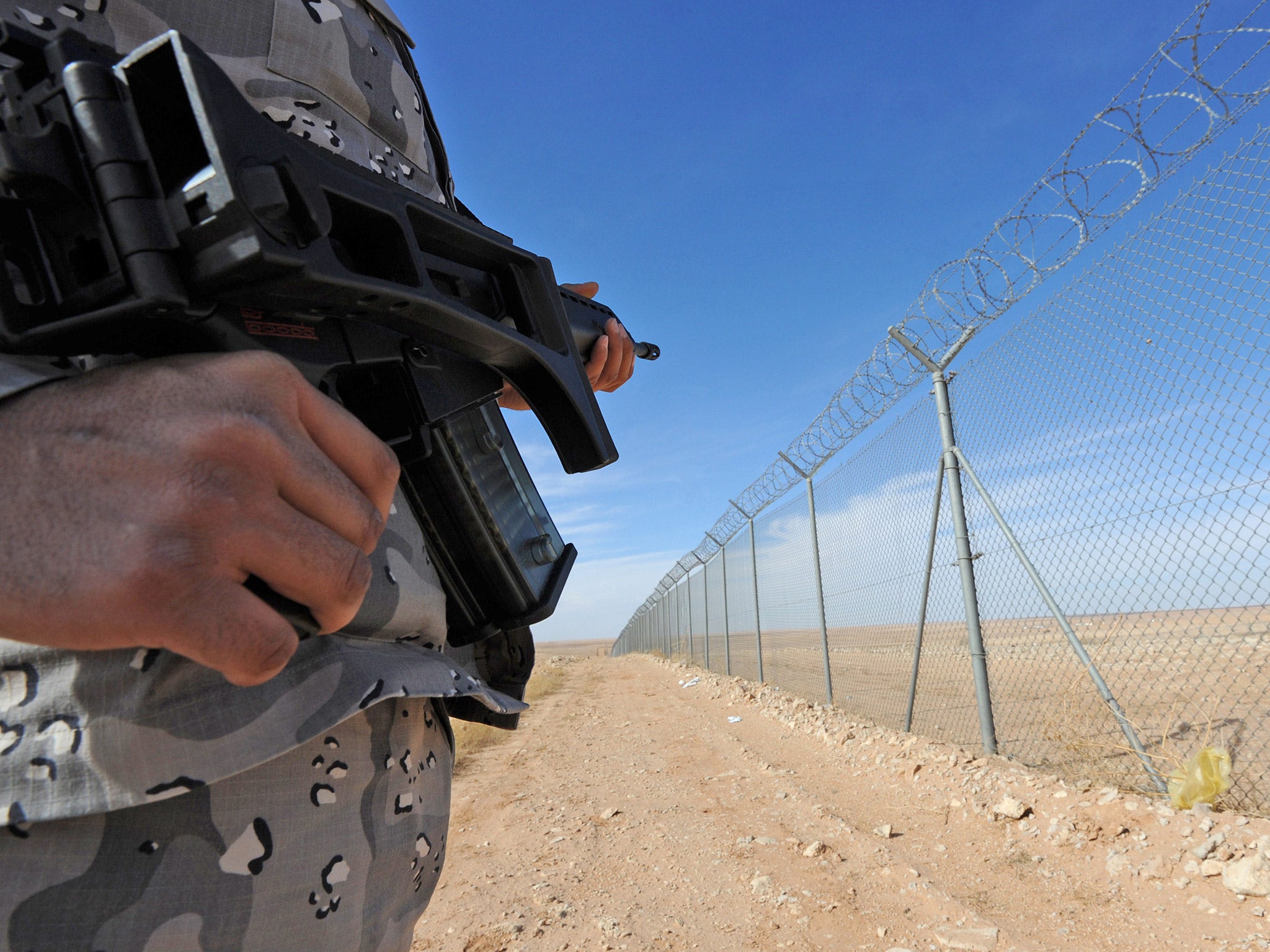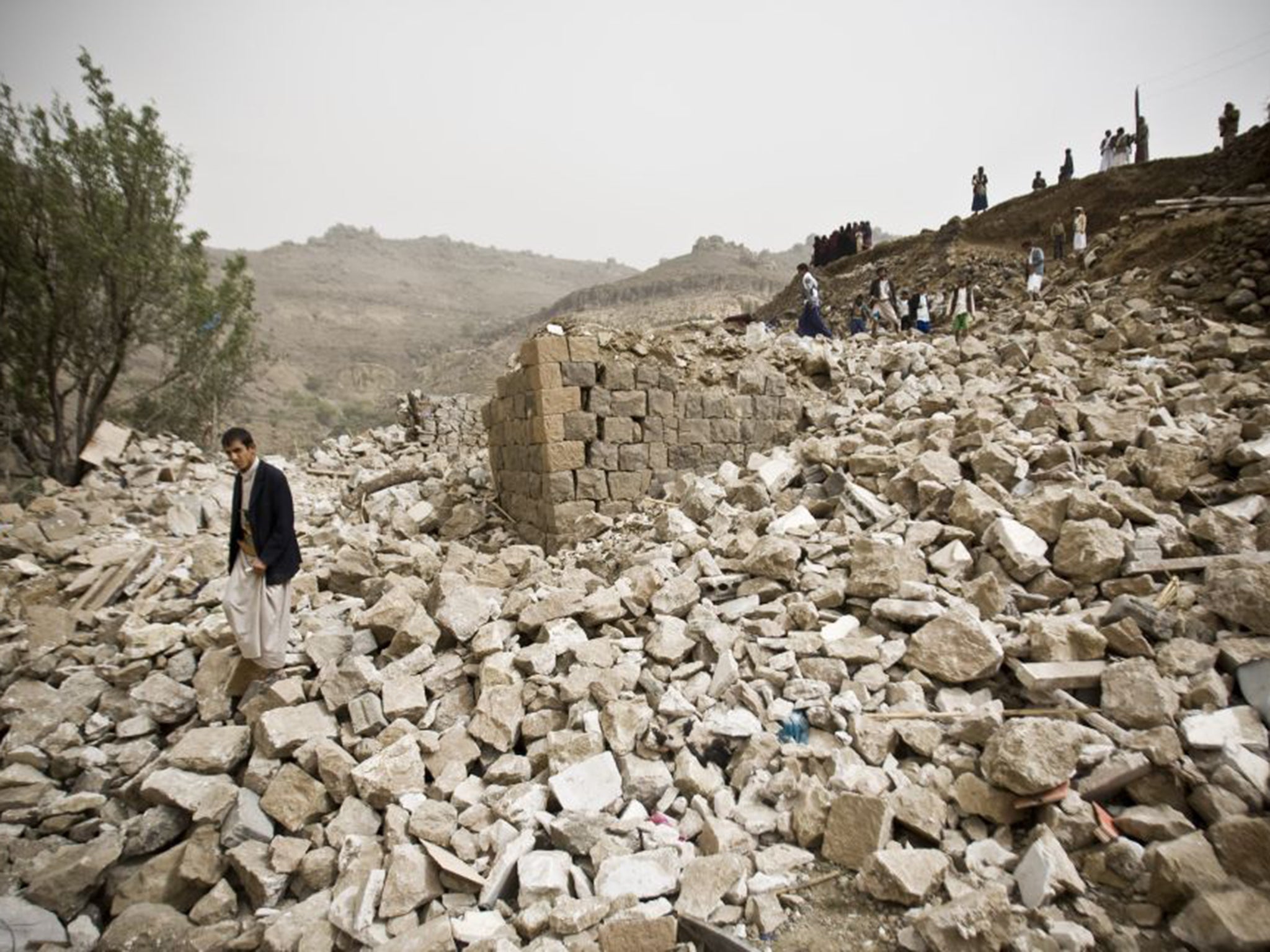Yemen crisis: Saudi Arabia's border troops fear more attacks by the Houthi militia
Concerns about incursions were central to the kingdom's campaign to stop the rebels controlling its southern neighbour - something Riyadh fears would strengthen its main foe, Iran, and heighten security risks

Your support helps us to tell the story
From reproductive rights to climate change to Big Tech, The Independent is on the ground when the story is developing. Whether it's investigating the financials of Elon Musk's pro-Trump PAC or producing our latest documentary, 'The A Word', which shines a light on the American women fighting for reproductive rights, we know how important it is to parse out the facts from the messaging.
At such a critical moment in US history, we need reporters on the ground. Your donation allows us to keep sending journalists to speak to both sides of the story.
The Independent is trusted by Americans across the entire political spectrum. And unlike many other quality news outlets, we choose not to lock Americans out of our reporting and analysis with paywalls. We believe quality journalism should be available to everyone, paid for by those who can afford it.
Your support makes all the difference.Far from war-damaged Sanaa and Aden, Lt-Col Hamed al-Ahmari stood at a Saudi border post and gestured across a valley to a Yemeni mountainside held by the Houthi militia, whose positions the kingdom’s jets have bombarded for nearly two weeks.
“We are in the front line,” Lt-Col Ahmari said, wearing the grey camouflage fatigues of the Border Guards, a force whose uniform has been augmented since the air strikes started with a flak jacket and helmet.
Concerns about the border with Yemen were central to the kingdom’s campaign to stop the Houthis controlling its southern neighbour, something Riyadh fears would strengthen its main foe, Iran, and heighten security risks.
Saudi Arabia believes the Houthis will incite sectarian violence as they advance into Sunni areas, strengthening support for Yemen’s al-Qaeda wing – al-Qaeda in the Arabian Peninsula – which last July raided a Saudi border town, killing 12. There were also unconfirmed reports that suspected al-Qaeda militants had attacked another remote border post.

The mountaintop al-Mushareq post has not been attacked since the strikes began, Lt-Col Ahmari said, but he claimed it could be hit by more serious weapons than the Houthis possess.
Saudi Arabia has reinforced its southern border with army units. A few dozen military vehicles, including ambulances with the Red Crescent stencilled on their sides, were parked in an army camp just behind the border. To the side, some artillery pieces pointed towards Yemen.
New border defences are being built. But bulldozers and diggers constructing a fenced patrol road will now lie still until the war is over.
The number of guards has increased in recent months and been reinforced by members of the Royal Saudi Land Forces. One goal of the campaign is to destroy Houthi positions near the border and prevent the militia from moving equipment towards Saudi Arabia, its spokesman has said.
The World Health Organisation has said more than 540 people have been killed and at least 1,700 have been wounded in Yemen since the middle of March, while the United Nations children’s agency, Unicef, said today that at least 74 children have been killed since the air strikes began, with 100,000 people forced from their homes.
The International Committee of the Red Cross said it is aiming to fly two aircraft carrying 48 tons of medical help and other aid to Yemen.
In the past six months in Jizan province, the most populous of the four which border Yemen, Saudi authorities have stopped 77,885 people trying to cross illegally from Yemen, seizing 3,563 guns, seven hand grenades and 2.2kg of explosives.
Reuters
Join our commenting forum
Join thought-provoking conversations, follow other Independent readers and see their replies
Comments